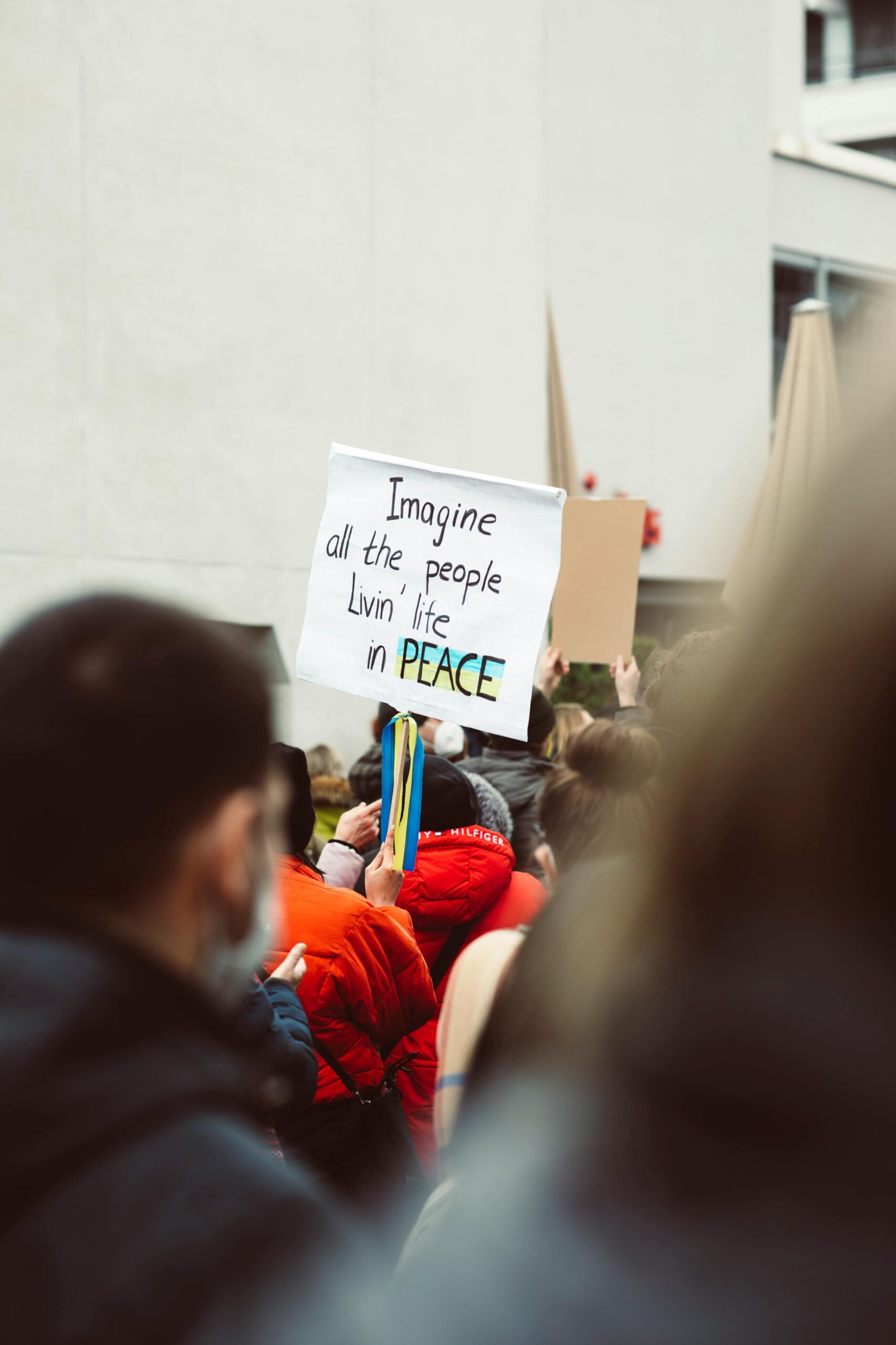
Former American Society of Bioethics and Humanities (ASBH) President Joseph Fins, MD has recently argued that bioethicists should avoid the “peril of silence” and denounce Russia’s war against Ukraine. The war, he argued, had taken a brutal toll on sick and disabled civilians, as well as the country’s healthcare institutions. As such, bioethicists have a “special kind of expertise” in assessing the war’s moral costs. Invasion and occupation of territory are deadly to individual lives and to public health, and thus bioethicists should speak out.
This argument set forth by Fins applies even more forcefully to the horror that the Israeli army is currently inflicting on Gaza. On October 7, Hamas militants broke into Israel, killed approximately 1,200 people—mainly civilians—and kidnapped approximately 240 more. Israel responded by dropping over 6,000 bombs on Gaza over a two-week period, followed by a ground invasion. These attacks have killed at present more than 11,000 Palestinians, many of whom were civilians, including at least 4,500 children. Even before these attacks, the Gaza health system was described by the Lancet as “fragmented and incoherent.” But now those fragments are on the verge of annihilation. Gaza professionals and international organizations such as the WHO and UNRWA report shortages of basic necessities such as anesthetics, antibiotics, and the power necessary to operate life-saving and sustaining machinery. Trauma surgeons sanitize wounds with household vinegar. Babies in neonatal intensive care units are at risk of dying en masse because of a lack of resources. Even if the fighting were to stop immediately, the situation is so dire that many more civilians would die.
Following international pressure—including from its strongest ally, the United States—the Israeli government has agreed to daily four-hour pauses in the fighting for the delivery of humanitarian aid. These pauses are welcome, but they are not adequate for the dire nature of Gaza’s current humanitarian needs. Bioethicists must call for a ceasefire. The goal of this ceasefire should be the steady and consistent delivery of vital humanitarian aid, as well as the restocking of Gaza’s healthcare system so that it can be restored to a level of functioning in keeping with well-established international norms.
This cessation of hostilities would be primarily motivated by Gaza’s immense humanitarian need. But it would also give the opportunity for Israelis, Palestinians, and the international community to seek strategies of mitigation that avoid a brutal war that could quickly turn regional or even global in scale. It could lay the ground for a more enduring peace between Israel and Gaza and provide a surer means of loosening Hamas’ hold on the Gaza Strip than brute force. It is worth noting that prior to October 7, Hamas was unpopular in Gaza, and 62% of Gaza residents were in favor of maintaining a cease-fire with Israel. They did not want an escalation, much less the inhumanity carried out by Hamas. But now Israel is killing them en masse. This killing ironically and tragically lets Hamas off the hook for its betrayal of the Gazan people and its cruelty toward Israelis. It also is a failure to reflect on the ways in which Israel’s own actions—including the sixteen-year blockade of Gaza, the occupation of and settler violence in the West Bank, and the increasing annexationist sentiments of key government figures—have played in driving radicalization among Palestinians. Coexistence, not brutality is a surer way toward a viable future for Israelis and Palestinians.
The rationale provided for continued Israeli attacks has been the elimination of Hamas’ military capacity. This is a reasonable goal, but the Israeli government has argued that this goal requires the occupation of Gaza for “as long as necessary.” But even Israel’s strongest ally—the United States—considers such an occupation to be disastrous in ethical, humanitarian, and strategic terms. But Israel instead is pursuing a maximalist possibility that will lead to further radicalization among Palestinians who feel they lack other legitimate options.
Israel has raised concerns that Gaza’s hospitals are being used to hide underground bunkers sheltering Hamas leadership. These allegations have been denied by both Hamas and hospital leaders. If true, this allegation would be a grave violation of the ethics of war and healthcare. But, given the current lack of conclusive evidence, it should not be taken as dispositive. A ceasefire would allow for further investigation of this possibility. In the meantime, even if Gaza’s hospitals were being used to hide Hamas leaders, that would not justify the massive loss of civilian life amidst a lack of ethical strategic objectives. This includes the Israeli army’s current attack on Al-Shifa Hospital. The details of this attack remain unclear, and even if Hamas has located a command-and-control center, or hostages, in the hospital, it does not appear that the IDF is acting in a way that protects human life in this attack.
Bluntly, there is no justification for a course of action that is likely to lead to the deaths of thousands more Palestinians in the immediate future, while demolishing what little remains of functioning healthcare in Gaza. This would itself lead to thousands, perhaps tens of thousands, of unnecessary deaths, borne by a largely civilian population. It would also lead to heavy losses among Israeli soldiers, and greatly endanger the more than 200 civilians currently being held by Hamas. These massive atrocities against innocent civilians cannot be justified by Israel’s reasonable objective of security, particularly as there has not been a concerted effort yet to achieve this objective via less violent means. A ceasefire and massive delivery of aid are necessary now.
Harold Braswell, MSW, PhD is an Associate Professor of Health Care Ethics at Saint Louis University
Zackary Berger, MD, PhD, FACP, is an Associate Professor in the Johns Hopkins School of Medicine and Core Faculty in the Johns Hopkins Berman Institute of Bioethics